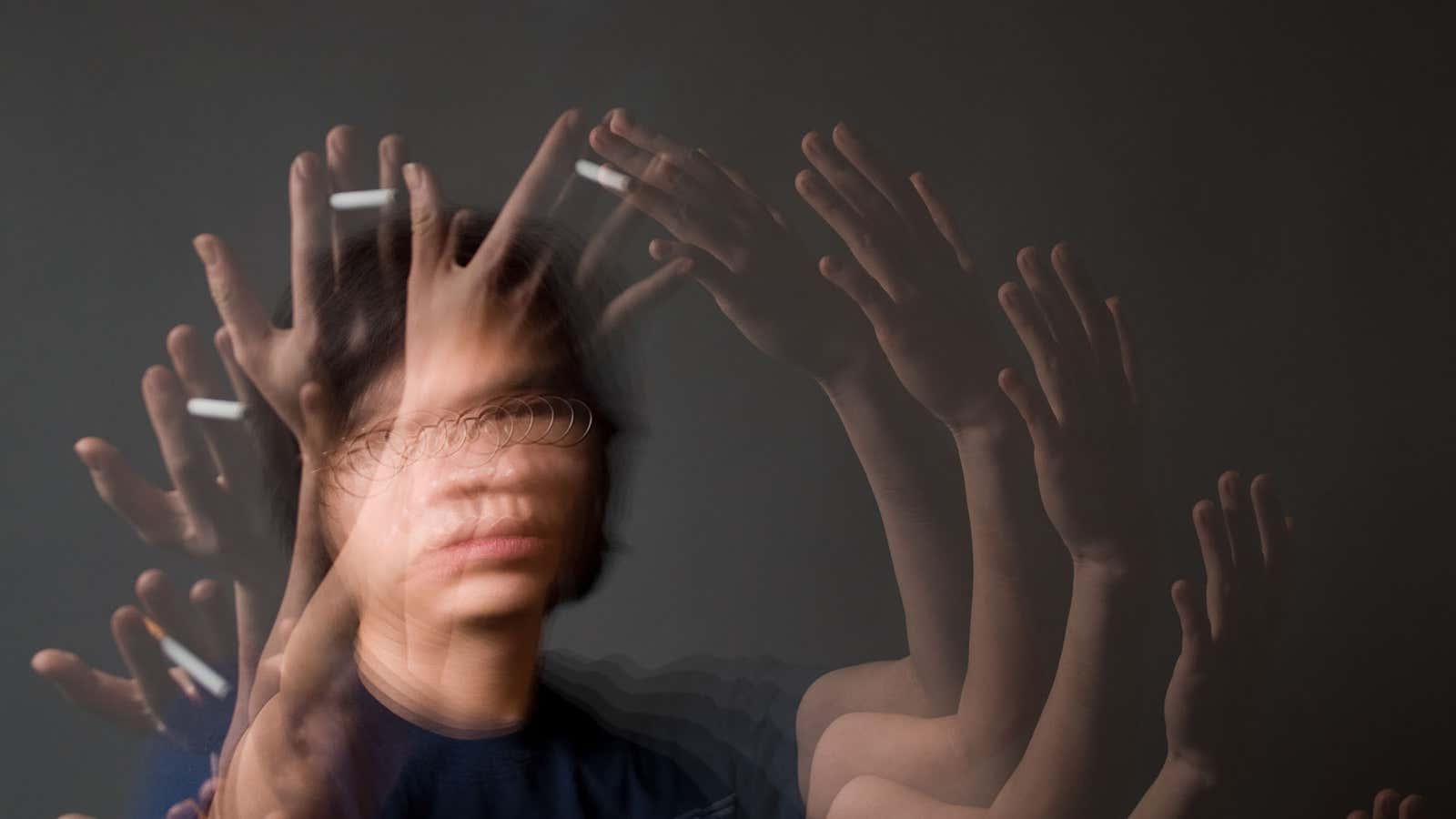Conventional psychology dictates that you are either psychotic or you are not—that is you have lost touch with reality or you haven’t. But scientists are now realizing that psychosis may instead lie on a spectrum, where only acute conditions require help.
The latest evidence comes from a survey titled “Psychotic experiences in the general population” published in JAMA Psychiatry. Researchers thoroughly examined the mental health of some 30,000 people in 18 countries with methods approved by the World Health Organization.
When they excluded the effects of drugs, they found that one in 20 people (some 5.8%) have had a psychotic experience—such as hallucinations or delusions—in their lifetime. One-third of those said they have had such experiences more than five times. If hallucinations and delusions are not that uncommon, the results hint that psychosis—like other mental oddities—may lie on a spectrum.
The clinical occurrence of schizophrenia—the most common form of psychosis—is about 0.3% of the population. Auditory hallucinations—where people think they are being spoken to by someone not actually present—are considered a strong symptom of the condition. But a recent study of some 150 people who have experienced such hallucinations revealed that most of them weren’t suffering schizophrenia.
Such psychotic episodes may be the result of acute stress, which anyone can suffer. Death in the family, a broken relationship, or even anxiety can trigger mechanisms in the brain resulting in, say, a hallucination.
This study adds to past evidence that psychotic experiences may be more common than we thought. There’s even more reason to banish the stigma attached to mental disorders—they’re part of the universal human experience.
Cropped image by See-ming Lee under CC-BY-SA 2.0 license.
